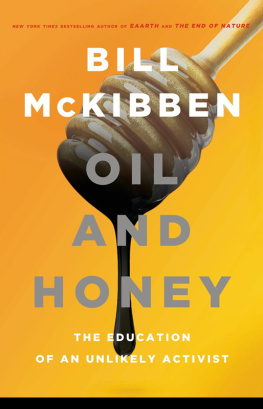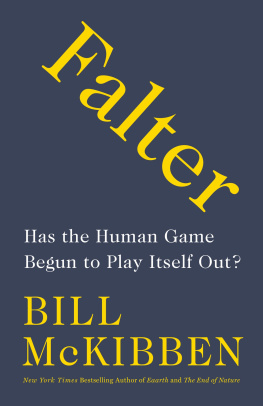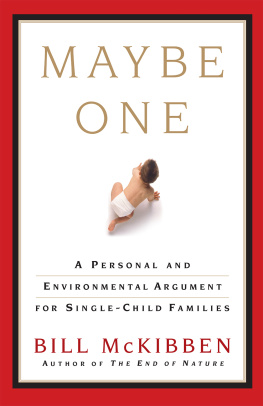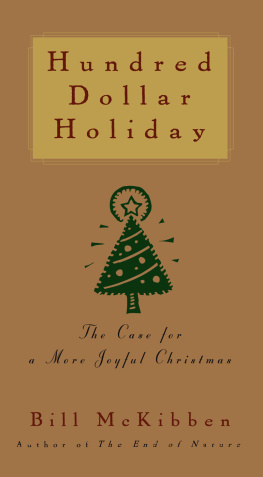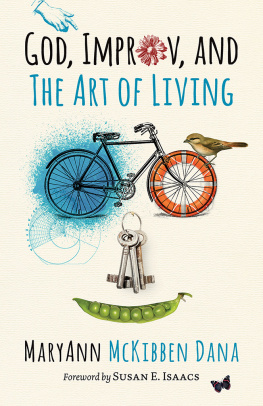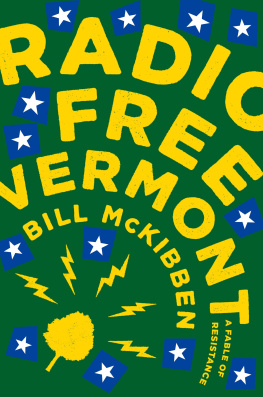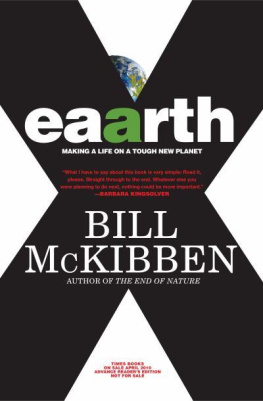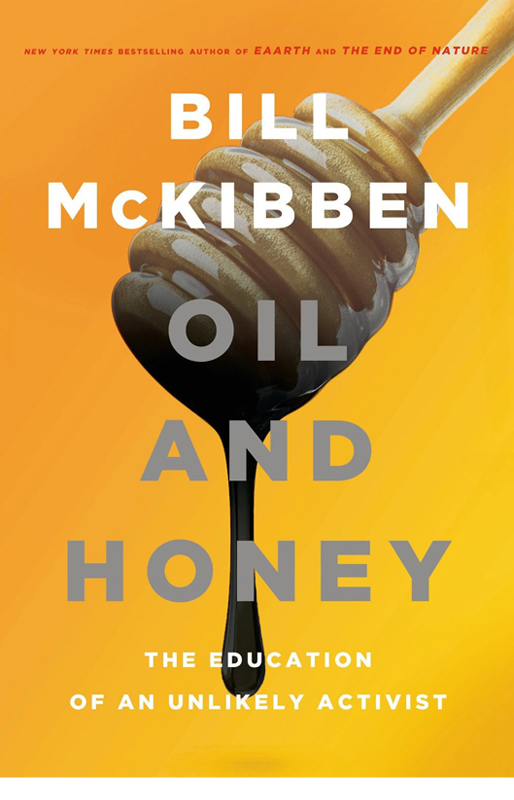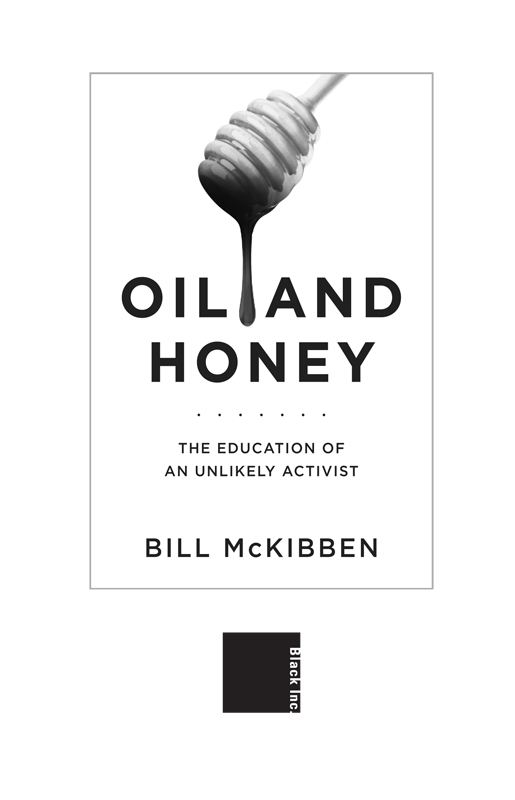Two Lives
Heres a story of two lives lived in response to a crazy timea time when the Arctic melted and the temperature soared, a time when the planet began to come apart, a time when bee populations suddenly dropped in half. Each story is extreme. Theyre not intended as suggestions for how others should live, and I hope the reader wont feel the need to choose, or reject, either one. Each story is mine, at least in part, for sometimes I think Ive learned more in the past two years than in all the decades that came before. Some of that education came in the tumult and conflict of my own life, as I helped to build an active resistance to the fossil fuel industry. And some came in the beeyards of my home state, while I carefully watched a very different, very beautiful way of dealing with a malfunctioning modernity. These stories mesh together, I hope: awkwardly right now, but perhaps, with luck, more easily in the time to come.
*
I first met Kirk Webster in the fall of 2001. Newly ensconced at Middlebury College in Vermont, Id offered to teach a course on local food production. There were two problems. One, I cant really grow anythingmy heart is green, but not my thumb. Two, this was long before Michael Pollan or Barbara Kingsolver had taken up local agriculture, and there wasnt really much to read. We could choose among the remarkable essays of Wendell Berry, the seductive novels of Wendell Berry, and the tough poems of Wendell Berry. Looking through back issues of a magazine called Small Farmers Journal , however, I came across an essay by a beekeeper named Kirk Webster. Im not sure I noticed, the first time I read it, that he was a neighbor. I was just taken by his confident prose and his descriptions of his life among the honeybees.
Surely the best kept secret in the U.S. today is the wonderful way of life thats possible with full-time farming on a small place, he began. If more people understood the opportunities for faith, freedom, responsibility, health and education that good farming can provide, our rural areas might be repopulated and the self-destructive course of our society reversed. This timeless activity is so much more than just a way of making a livingit is in fact the Middle Path described in the Buddhas teachings and the object of St. Thomass words: The kingdom of heaven surrounds you, but you see it not.
He was, it turned out, living in the next town over, and easy to track down via the small-farmer grapevine; he agreed to come to class and talk. I dont recall everything he said that day, but I do remember my first impression: he was bearded, shy, and a little ill at ease, but we all took to him instantly. Even the students who had no intention of becoming farmersthe ones bound for finance or medicine or the other high-powered careers you leave for from a place like Middleburywere shaken a little by his quiet resolution, and by his story.
Hed grown up in suburban New Jersey (like many of them), in a family he described in his essay as largely dysfunctional and aimless (so, not unlike a lot of them). I always liked to read, and I didnt have trouble getting good grades, so everyone assumed I would be able to get scholarships and somehow continue as far as possible with education. By the age of fifteen, though, it was clear that I was soon going to seek elsewhere for something to do in my life. Nature and the outdoors world had become an irresistible magnet, and so in order that he earn some kind of diploma his parents sent him to the Mountain School in farm country Vermont, a rural outpost that grew its own food and cut its own firewood, and where he was all but adopted by one of the families whose parents taught at the school. Bill and Martha Treichler, and their boys and girls, taught him how to garden and to build and to do the hundreds of other jobs of rural self-sufficiency; he suddenly had a model that made sensea joyful and tight farm family who were living outside the normal economy.
One evening, just before dinner in the noisy school dining hall, he wrote, Bill told me that the year their fifth child was born, the familys gross income was $600. I almost dropped the pitcher of milk I was holding. The sights and sounds in the room started to spin, and I felt like someone had just hit me right between the eyes with a stick of cordwood. Here were the most capable, healthiest, and best educated people I had ever met, who with five young children at home, had chosen a way of life with only $600 of cash income (perhaps equivalent to $2,400 today). They certainly could have pursued any number of jobs or careers to make a normal income, but chose instead to be together as a family and pick and choose carefully which aspects of the larger society they would get involved with. Farming and healthy self-sufficient living in a debt-free situation allowed them to do this. In that moment in the dining hall, all of my developing notions of making a living, security, jobs and careers were shattered, and I knew I would have to start again in learning what these things really mean.
That moment ramified. When he was wracked up in a toboggan accident that winter, someone gave him a book on beekeeping, and it captured his imagination; home on vacation in New Jersey he found an octogenarian Ukrainian immigrant who needed help with his hives. That man told him about anotherCharlie Mraz, in Vermonts Champlain Valley, and when Kirk returned to school he hitchhiked across the state to ask the veteran apiarist for a job. He worked there for two years after high school, eating meals with the family but sleeping in the honey house. And then, still a very young man, he struck off across the country, working on a variety of farms and doing carpentry to pay his bills. Everywhere he went he built up small apiaries, honing his skills, and in the fall of 1985 he returned to the Champlain Valley and began his lifes work, raising bees and selling colonies, queens, and honey. Slowly, patiently, and in the face of growing problems with mites that were decimating many apiaries, he built his business into a going concern, pioneering a number of new techniques and becoming one of the very few beekeepers in the country who made a living without using chemicals in his hives. It was a decent living, toowhen he came to my class that day, he bought his books with him, and showed us that Champlain Valley Bees and Queens, Inc., was grossing $50,000 a year, of which about half netted out. After living, and enjoying life, for so long with so little money, this frankly seems like an enormous fortune to me, he said. In terms of the American greedy lifestyle, its still not very much money. But I consider it to be a more than ample reward for the independence, the wonderful way of life, and the chance to live apart from a predatory society that beekeeping and farming provide.

